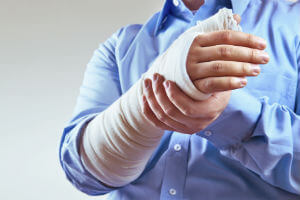
Fault, also called liability, indicates who holds legal responsibility for an accident. Fault can be complicated to determine, but in many cases depends on if someone acted carelessly or negligently.
Most accidents result from someone acting carelessly or negligently. When determining fault for an accident, it is often divided between the parties, as more than one person’s careless actions may have contributed to the event and resulting injuries. In an accident where both parties acted with some level of carelessness, generally the one who exhibited more carelessness will be held legally responsible for a portion of damages incurred by the party who acted less carelessly.
Nearly all accident cases use the example of negligence, as well as other propositions:
- If the party who was injured was in a location they were not allowed, or a place where they should have reasonably known such an accident could occur, the party who caused the accident may not be considered liable, as they have no duty to act carefully toward the injured party.
- If the injured party acted carelessly, compensation may be diminished by the degree their carelessness contributed to the accident – this principle is called comparative negligence.
- If a careless party causes an accident while working for an employer, the careless party could be held liable. Workers’ Compensation laws prevent claims from being brought against an employer, but do allow for a third party claim against another party that caused a worker injury.
- If an injury occurs on a dangerous property, either poorly constructed or maintained, the property’s owner may be liable for negligently maintaining the grounds.
- If a defective product causes an accident, both the seller and manufacturer may be held liable, regardless if the injured party knows which party’s negligence caused the injury.
When determining if a party was negligent, four elements must be present:
- The at-fault party had a duty to act with reasonable car and not cause harm to others.
- The at-fault-party acted, or failed to act, in a way that was negligent, careless or intentional and caused harm to the injury victim.
- Those actions, or breach of duty of care, directly caused the victim’s injuries.
- The victim’s injuries caused him or her to suffer economic damages.
If multiple careless parties caused an accident, such as in a multi-vehicle accident, most states dictate that any of the careless parties could be held liable for compensating the injured person. The negligent parties must figure out reimbursement among themselves. This is beneficial to the injured party in cases where one negligent party is uninsured but the others are.
Some states allow injured parties to recover compensation based on the other party’s negligence, regardless of the injured person’s own fault. Most states, including Florida, do not allow injured persons to collect compensation if their carelessness was 50 percent or more to blame for the accident.
If you have suffered a devastating injury resulting from an accident, work with a personal injury attorney who knows the law and what evidence is needed to support your claim. The personal injury attorneys at Gordon & Partners will fight to win your case and recover maximized compensation for your medical bills, lost wages, and pain and suffering.
Call 1 (855) 722-2552or fill out our Free Case Evaluation form.

 1-855-722-2552
1-855-722-2552